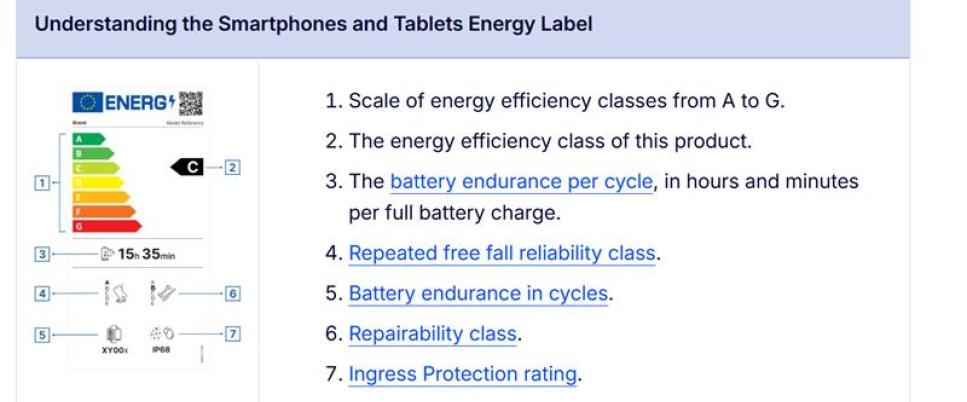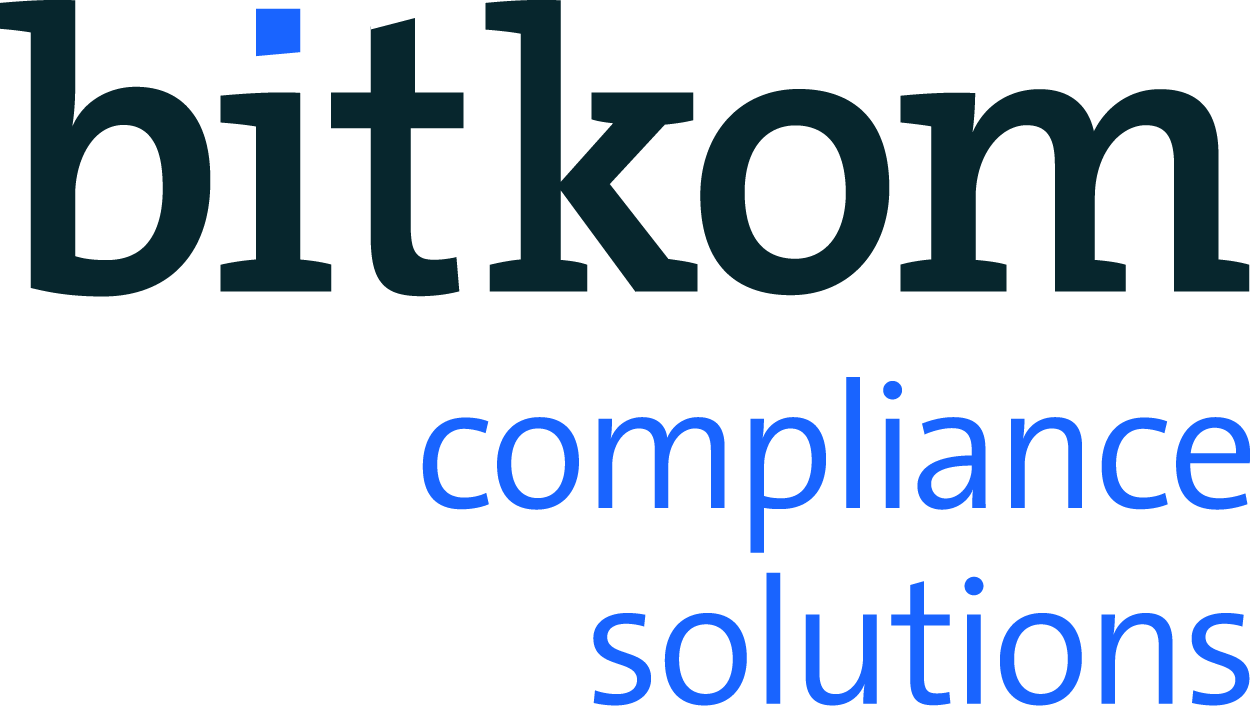New EU Requirements: Ecodesign and Energy Labelling for Smartphones and Tablets from June 2025
As of 20 June 2025, binding ecodesign requirements will apply within the EU for smartphones, feature phones, cordless phones, and slate tablets. At the same time, smartphones and slate tablets must bear a harmonised EU energy label that enhances transparency for consumers and provides incentives for producers to adopt more energy-efficient designs.
Ecodesign: Increased Durability and Repairability
Pursuant to Regulation (EU) 2023/1670, smartphones, feature phones, cordless phones, and slate tablets placed on the Union market from 20 June 2025 onwards must comply with the following ecodesign requirements:
-
Resistance to accidental drops or scratches and protection from dust and water
-
Sufficiently durable batteries which can withstand at least 800 charge and discharge cycles while retaining at least 80% of their initial capacity
-
Rules on disassembly and repair, including obligations for producers to make critical spare parts available within 5-10 working days, and for 7 years after the end of sales of the product model on the EU market
-
Availability of operating system upgrades for longer periods (at least 5 years from the date of the end of placement on the market of the last unit of a product model)
-
Non-discriminatory access for professional repairers to any software or firmware needed for the replacement
These requirements aim to reduce the environmental impact of the covered products, limit the generation of electronic waste, and support the functioning of the internal market through harmonised rules.
Energy Labelling: Enhanced Consumer Information
In parallel, from 20 June 2025, smartphones and slate tablets placed on the Union market must be accompanied by an energy label in accordance with Regulation (EU) 2023/1669. In addition to the established energy efficiency classes and a repairability score, the label will include further information reflecting product durability, including:
-
Battery life per charging cycle
-
Reliability rating following repeated drop tests
-
Number of charge cycles until battery capacity drops below 80% of the rated capacity
-
Ingress Protection (IP) rating against the penetration of solids and liquids
These provisions are designed to incentivise the producer of more sustainable and resource-efficient devices and to enable consumers to make informed purchasing decisions based on environmental performance and ease of repair.

Do you need further information?
We are happy to offer you further consulting services as part of our Compliance Consulting. If you have any questions, please do not hesitate to contact us: to the offer form.

